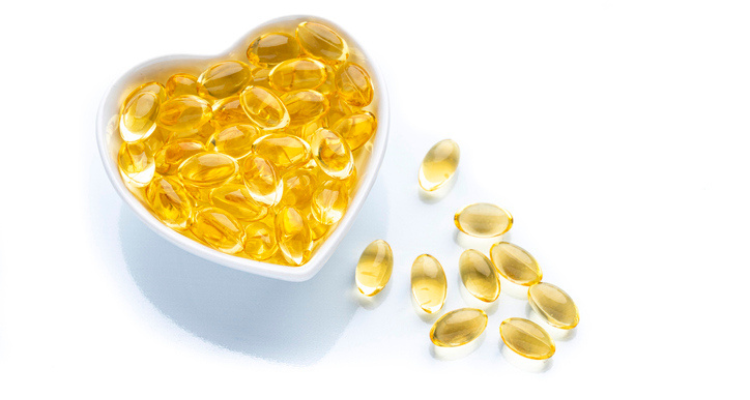
You’ve likely heard the buzz around the importance of omega-3 fats, but with so many choices out there, it can be tough to choose the right supplement for you. No omega-3 oil is totally better than others, as each one serves a unique purpose and offers various health benefits.
One common question surrounds the difference between omega-3 and fish oil supplements. All fish oil contains omega-3 fatty acids, but not all omega-3 fats come from fish oil. While omega-3 fats from fish oil are more easily utilized by the body for their natural EPA and DHA content, plant-based omega-3 sources must be converted from ALA. Genetically, some people are predisposed to conversion inefficiency, making it hard to obtain enough omega-3s from plant-based oils alone.
In most cases, there is a place in the diet for a variety of fats and oils that provide omega-3s for kids and adults, and it’s important to understand how to incorporate them into your routine.
why are omega-3 fatty acids so important?
Omega-3 fatty acids are a common nutrient deficiency (a close second behind vitamin D), and health care professionals often recommend supplementation in the form of fish oil or other omega-3 oils . All omega-3s are known as “essential fatty acids,” since the body cannot produce these polyunsaturated fats on its own. The word “polyunsaturated” refers to a specific chemical structure, as “poly” means many and “unsaturated” refers to double bonds.
Fish oil contains docosahexaenoic acid (DHA), eicosapentaenoic acid (EPA), and other plant-based omega-3 supplements contain alpha-linolenic acid (ALA). All form critical components of the body’s cell membranes, and each contribute to balanced cholesterol levels, healthy triglycerides, weight and mood support, normal inflammatory pathways, and improved cardiovascular and cognitive health.[1][2][3]

when to use omega-3 vs. fish oils
It is important to include variety in your diet to ensure you consume a vast array of nutrients, and striving for a variety of healthy omega 3 fats is critical. Plant-based oils high in ALA include flax oil and flaxseeds, walnut oil and walnuts, pumpkin seed oil and pumpkin seeds. Some of these fats (particularly flax oil) are also known for their support of women’s hormonal balance and breast health.[4]
Fish oil supplements also vary widely, and a practitioner will recommend a product depending on the desired outcome. For example, cod liver oil can be taken in large amounts for supporting a normal inflammatory response or joint discomfort. A highly concentrated fish oil capsule might be used for higher dosing to support a healthy lifestyle.
The main takeaway is that you don’t need to think about choosing one over the other—instead, add in a variety of fish and plant-based omega-3 foods (and possibly supplements) for overlapping benefits.
plant-based omega-3 supplements
Largely due to genetics, some people (especially women) are less able to convert ALA to DHA and EPA fatty acids. For these individuals, relying solely on plant-based omega-3 sources can be problematic. For vegans and vegetarians, an algae oil is one plant-based source that offers EPA and DHA. Combining algae oil with other ALA-containing fats such as sesame, chia, pumpkin. flax, and hemp can help lay the foundation for a balanced intake of fatty acids.
fish oil: what to look for
Like all supplements, every fish oil is not created equal. When shopping for a fish oil, it’s essential to be aware of the following factors:
freshness
Omega-3 oils are highly susceptible to oxidation, which makes them go rancid and turn to pro-inflammatory oils.
purity
Always choose a product that meets international purity standards for heavy metals, dioxins, and other contaminants.
potency
A high-quality fish oil product that delivers results should contain an adequate amount of EPA and DHA.
bio-availability
The body’s ability to absorb the beneficial components of any fish oil depends on the molecular shape of the fatty acids. The more natural the structure, the better, which is why cod liver oil is such a popular choice.
sustainability
Look for products that are harvested in a sustainable way and species that are not under threat.
food sources of omega-3 fatty acids
Along with the nuts, seeds and plant-based oils already discussed, other excellent food sources of omega-3 fatty acids include cold-water fatty fish like wild salmon, mackerel, sardines, and herring. Pastured or omega-3 eggs and grass-fed beef also provide some EPA and DHA.
While fatty fish is hands down the most potent food source of omega-3 fatty acids, exposure to pollutants is a serious problem. Of utmost concern for human consumption are mercury, pesticide residues, dioxins, and polychlorinated biphenyls (PCBs) that come from industrial products and chemicals. Seafood that is high in omega-3 fats and lowest in environmental contaminants include wild-caught shrimp, salmon, sardines, anchovies, and Atlantic mackerel.
Visit the EPA's guidelines for eating fish that contain mercury to learn what quantities are safe to eat.
takeaway
There is no one-size-fits-all approach when it comes to omega-3 supplements. Eating contaminant-free wild fish regularly helps to maintain healthy levels, but plant based sources can also provide their own unique health benefits. Supplements and a variety of animal and plant-based foods rich in omega-3s can support the many body systems that depend on these crucial fats to thrive.

[1] Leaf A. Historical overview of n-3 fatty acids and…Am J Clin Nutr. 2008;87(6):1978S-80S. doi:10.1093/ajcn/87.6.1978S
[2] Grosso, G., Galvano, F., Marventano, S., Malaguarnera, M., Bucolo, C., Drago, F., & Caraci, F. (2014). Omega-3 fatty acids and..: scientific evidence and biological mechanisms. Oxidative medicine and cellular longevity, 2014, 313570. https://doi.org/10.1155/2014/313570
[3] Calder PC. n-3 polyunsaturated fatty acids.. Am J Clin Nutr. 2006;83(6 Suppl):1505S-1519S. doi:10.1093/ajcn/83.6.1505S
[4] Parikh M, Maddaford TG, Austria JA, Aliani M, Netticadan T, Pierce GN. Dietary Flaxseed as a Strategy for Improving Human Health. Nutrients. 2019 May 25;11(5):1171. doi: 10.3390/nu11051171. PMID: 31130604; PMCID: PMC6567199.


















